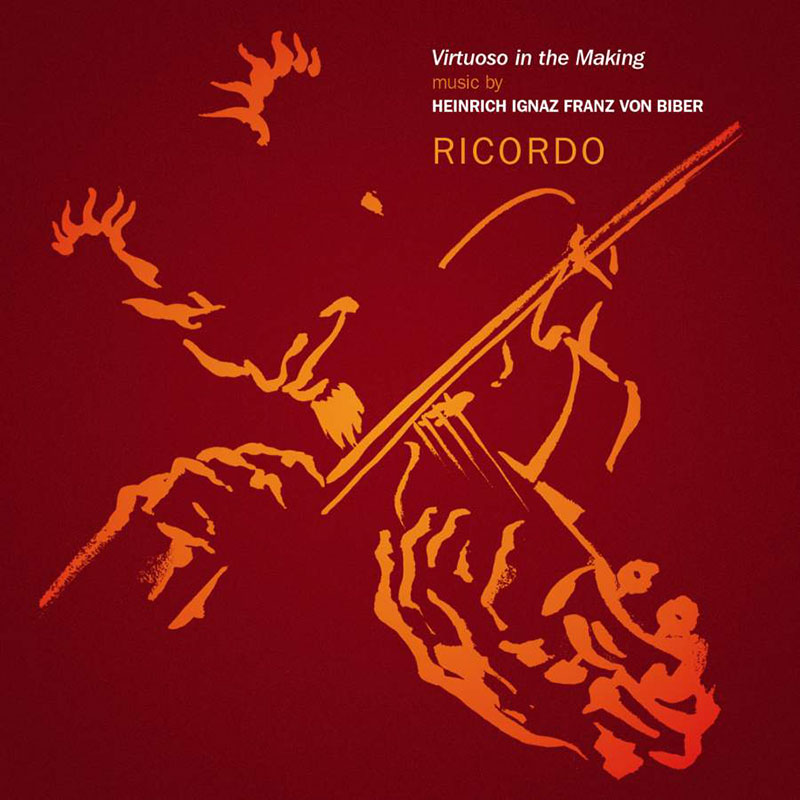Logowanie
Dziś nikt już tak genialnie nie jazzuje!
Bobby Hutcherson, Joe Sample
San Francisco
SHM-CD/SACD - NOWY FORMAT - DŻWIĘK TAK CZYSTY, JAK Z CZASU WIELKIEGO WYBUCHU!
Wayne Shorter, Freddie Hubbard, Herbie Hancock, Ron Carter, Elvin Jones
Speak no evil
UHQCD - dotknij Oryginału - MQA (Master Quality Authenticated)
Chesky! Niezmiennie perfekcyjny
Winylowy niezbędnik
ClearAudio
Double Matrix Professional - Sonic
najbardziej inteligentna i skuteczna pralka do płyt winylowych wszelkiego typu - całkowicie automatyczna
BIBER, SCHMETZER, Matthew Wadsworth, Kati Debretzeni, Ricordo
Virtuoso in the Making
- Matthew Wadsworth - lute
- Ricordo
- Kati Debretzeni - violin
- BIBER
- SCHMETZER
In the second half of the 17th century, a handful of virtuosos established a clear Austro-German supremacy of the violin over its birthplace, Italy. Amongst them Heinrich Ignaz Franz von Biber stands out both as composer and as violinist. History has done him justice: he is today more popular then ever. His life is well documented, and his major instrumental collections are widely published and recorded. His formative years, however, are merely speculated upon, and they are the focal point of this recording.
Biber was born on Aug. 12th, 1644, in Wartenberg (now Stráz pod Ralskem), Bohemia. The first documents concerning his life come from the court of Prince-Bishop Carl Lichtenstein-Castelcorn (1624-'95), bishop of Olmouc, whose services he entered at Kremsier (today Kromeríž, in the Czech Republic) as "chamber servant" in 1668. Their parting of ways only two years later is infamous: Biber, ever the opportunist, took off without obtaining permission to leave, and entered the services of Maximilian Gandolph, Prince-Archbishop of Salzburg – no doubt following an offer for better wages. He spent the rest of his life in Salzburg, working his way up to the title of ‘Kappelmeister’. His fame as virtuoso violinist "was well known to great many courts", as he himself wrote humbly in his second (and granted) petition for knighthood. By his latter years, he was a well published, successful, and moderately wealthy musician. A man who no doubt enjoyed earthly pleasures, he planted a small garden and cultivated wine is his last decade of life. On the 3rd of May 1704 "in the night between twelve and one o'clock [...] after four days of outstanding illness [...the] Kappelmeister, after receiving the holy sacraments, and with the most beautiful resignation, fell gently asleep in God's will".
Biber is a prime exponent of Kirchner's stylus phantasticus in his use of an inventive, elaborate, extravagant, ever surprising and quirky violinistic virtuosity. His highly individual style can be traced back to his early works for solo violin which survive mainly in two collections: in the Archiepiscopal Archives in Kromeríž, and in a late 17th century manuscript (MS 726) containing over one hundred Austro-German violin sonatas, preserved at the Minoritenkonvent, Vienna.
Another suggested teacher for Biber is Antonio Bertali (1605-'69), Schmelzer's predecessor at Vienna. An early work thought to demonstrate this connection is a Sonata à 3, for 2 violins and trombone ascribed to " H.B." at Kromeríž. It has long been attributed to Biber, and even published as his work. Bertali wrote a number of similar sonatas for exactly the same scoring. If the work is by Biber, he might be trying his hand at writing ‘in the style of’, as any novice composer would. Another possibility is that the work has so far been mis-catalogued. The initials "H.B” could easily be interpreted as "A.B.", standing for Bertali himself. The fact that there is not an iota of Biberesque elements in either of the solo violin passages points to this option. The second of these is, however, more fanciful than any other in Bertali's works. Was it written with the young Biber in mind?
************
ClassicsToday.com
![]() This is a grand undertaking and a very welcome addition to Biber's already substantial discography. Highly recommended!
more >>
Classical.net
A splendid debut CD, well researched and documented, impeccably recorded & good value with the CD-ROM extras a real bonus.
more >>
Gramophone
...an accomplished rendition...
more >>
Audiophile Audition
A recording to highlight 'the ensemble's delicious obsession with the extravagant instrumental fantasies'
more >>
This is a grand undertaking and a very welcome addition to Biber's already substantial discography. Highly recommended!
more >>
Classical.net
A splendid debut CD, well researched and documented, impeccably recorded & good value with the CD-ROM extras a real bonus.
more >>
Gramophone
...an accomplished rendition...
more >>
Audiophile Audition
A recording to highlight 'the ensemble's delicious obsession with the extravagant instrumental fantasies'
more >>


































